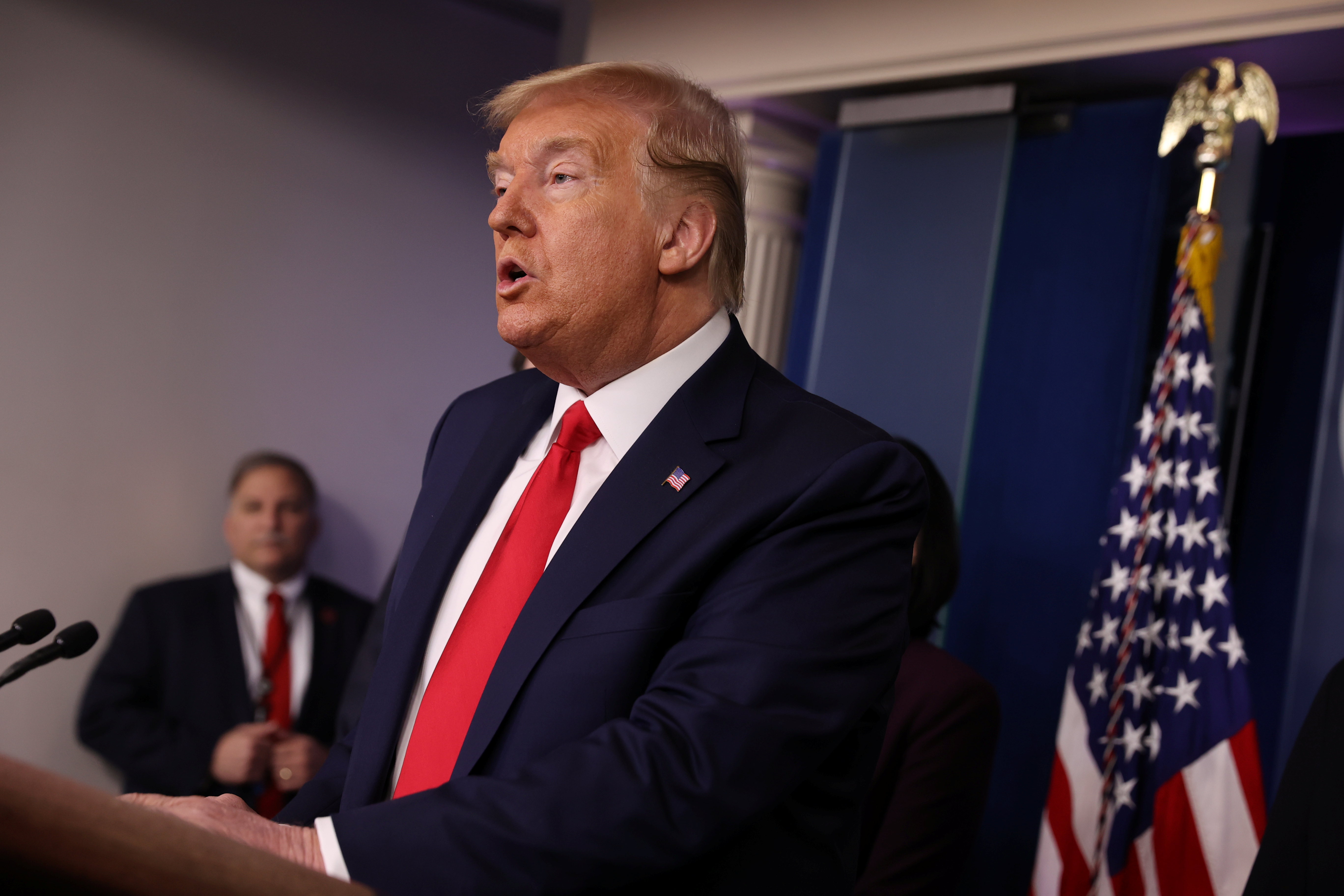
By Ted Hesson and Alexandra Alper
WASHINGTON (Reuters) – President Donald Trump’s administration is considering invoking special powers through a law called the Defense Production Act to rapidly expand domestic manufacturing of protective masks and clothing to combat the coronavirus in the United States, two U.S. officials told Reuters.
The use of the law, passed by Congress in 1950 at the outset of the Korean War, would mark an escalation of the administration’s response to the outbreak. The virus first surfaced in China and has since spread to other countries including the United States.
U.S. health officials have told Americans to begin preparing for the spread of the virus in the United States.
The law grants the president the power to expand industrial production of key materials or products for national security and other reasons. The biggest producers of face masks in the United States include 3M Corp and Honeywell International Inc.
Trump, a Republican seeking re-election on Nov. 3, has faced criticism from Democrats over his administration’s response to the outbreak.
Health and Human Services (HHS) Secretary Alex Azar told lawmakers this week that the United States needs a stockpile of about 300 million N95 face masks – respiratory protective devices – for medical workers to combat the spread of the virus. The United States currently has only a fraction of that number available for immediate use, Azar testified.
During an interagency call on Wednesday, officials from HHS and the Department of Homeland Security (DHS) discussed the possibility of invoking the Defense Production Act for the manufacture of “personal protective equipment” that can be worn to prevent infection, according to a DHS official.
Such equipment can include masks, gloves and body suits.
Azar said at a congressional hearing on Wednesday that China controls “a lot of the raw materials as well as the manufacturing capacity” related to face masks.
“Very little of this stuff is apparently made in the (United) States, so if we’re down to domestic capability to produce, it could get tough,” the DHS official told Reuters.
A White House official confirmed that the administration was exploring the use of the law to spur manufacturing of protective gear. Both the DHS official and the White House requested anonymity to discuss the issue.
“Let’s say ‘Company A’ makes a multitude of respiratory masks but they spend 80% of their assembly lines on masks that painters wear and only 20% on the N95,” the White House official said. “We will have the ability to tell corporations, ‘No, you change your production line so it is now 80% of the N95 masks and 20% of the other.'”
“It allows you to basically direct things happening that need to get done,” the official added.
HHS declined to comment. DHS did not immediately respond to a request for comment.
‘VERY LOW’
Trump said on Wednesday the coronavirus risk to the United States remained “very low,” but that federal health officials were prepared to take action and that Vice President Mike Pence would take control of the U.S. response.
Chuck Schumer, the top Senate Democrat, on Thursday accused Trump of “towering and dangerous incompetence” and said the president “must get his act together” on the coronavirus threat.
Invoking the Defense Production Act is one of a number of options under consideration by the administration to combat the virus, the officials said, and no final decision has been made. Trump invoked the law in 2017 to address technological shortfalls in a vaccine production capability and other items such as microelectronics.
The law grants the president broad authority to “expedite and expand the supply of resources from the U.S. industrial base to support military, energy, space, and homeland security programs,” according to a summary on the Federal Emergency Management Agency website.
Azar testified on Wednesday that the United States has a stockpile of around 12 million of the N95 masks that are in line with certifications from the U.S. National Institute for Occupational Safety and Health (NIOSH). HHS also has another 5 million N95 masks that are no longer NIOSH certified, Azar said, perhaps because they are past the expiration date.
In addition to those masks, the U.S. government has a stockpile of 30 million “gauze type” surgical masks, which the U.S. Centers for Disease Control and Prevention has said are less effective because they are loose-fitting.
Azar said the government needs a stockpile of approximately 300 million N95 masks.
U.S. Food and Drug Administration Commissioner Stephen Hahn said in a written statement on Thursday that the agency had heard reports of increased market demand for some types of protective medical gear and “supply challenges,” but was not aware of specific shortages.
CDC Director Robert Redfield testified at a House subcommittee on Thursday that he would ask ordinary Americans not to buy N95 masks at this time.
“There’s no role for these masks in the community,” he said. “These masks need to be prioritized for healthcare professionals.”
(Reporting by Ted Hesson and Alexandra Alper; Additional reporting by Michael Erman, Jeff Mason, Mike Stone and David Brunnstrom; Editing by Ross Colvin, Will Dunham and Daniel Wallis)








